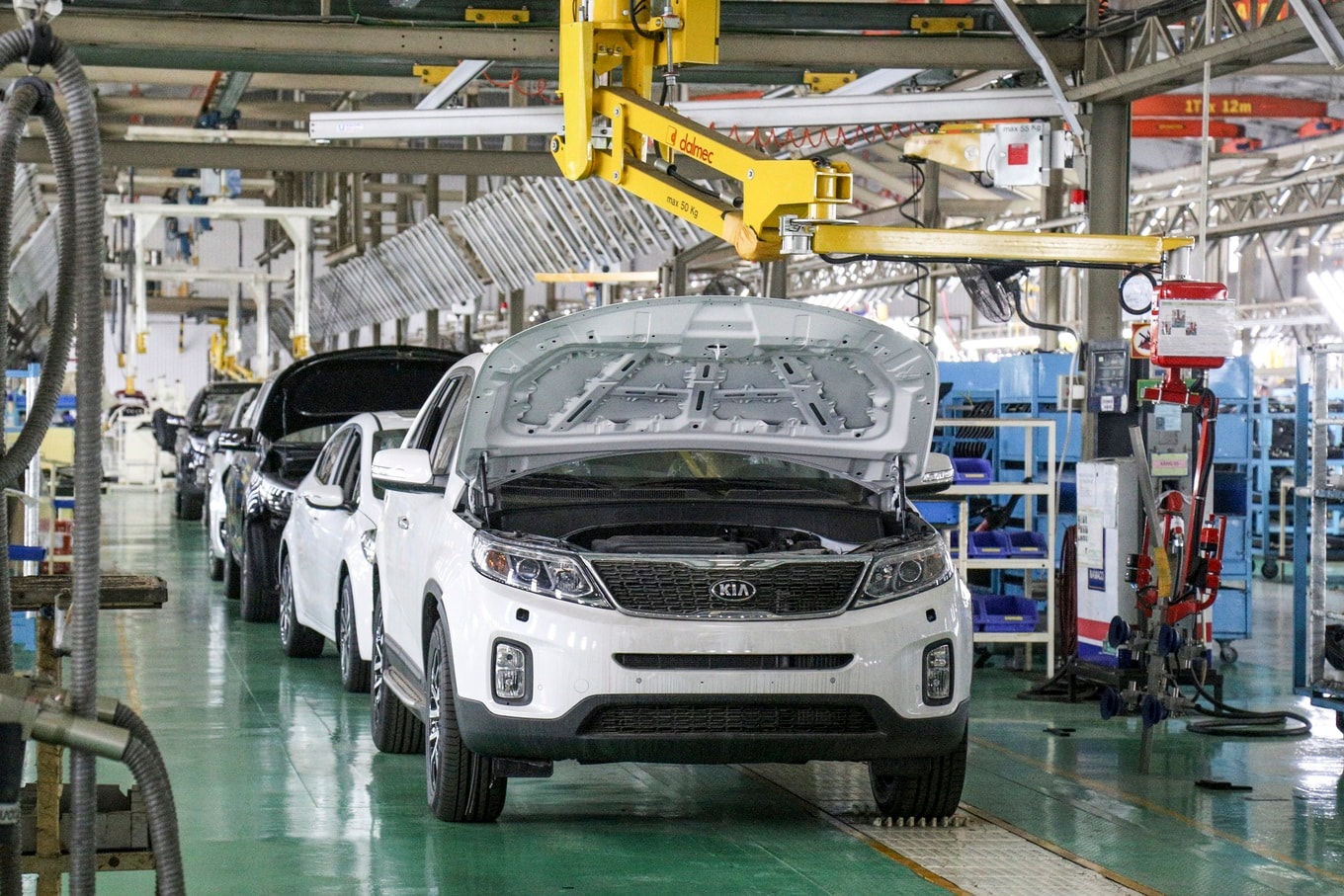50% reduction in registration fee, will the used car market suffer?
Automobile manufacturing and assembling enterprises in Vietnam have just received a "lifesaver" with a policy of reducing 50% of registration fees. However, will this policy affect the used car market, causing the selling prices of these car models to drop?

On June 28, the Government officially issued Decree No. 41 regulating the registration fee for domestically manufactured and assembled automobiles. Specifically, the registration fee for domestically manufactured and assembled automobiles, trailers, semi-trailers and similar vehicles will be reduced to 50% of the fee prescribed in Decree No. 20 dated February 21, 2023.
The reduction in registration fees is considered to help stimulate consumption and remove difficulties for domestic automobile manufacturing and assembly enterprises in the context of many economic difficulties.
Mr. Vu Duy Minh - Head of Sales Department of Hyundai Pham Van Dong (Hanoi) said that in the first half of 2023, the auto market plummeted, car buying demand decreased by 50% compared to the same period last year, car inventory fluctuated from 300-400 cars, or even higher.
Therefore, reducing 50% of registration fees for domestically produced cars will help stimulate consumption and boost the market.

“Car models with reduced registration fees such as Tucson, Accent, Santa Fe all have their registration fees reduced by 30-70 million VND, customers can save a lot of money when buying a car,” said Mr. Minh.
However, the 50% reduction in registration fees for domestically assembled cars has strongly affected the used car market, pushing the selling prices of these car lines down to low levels, causing the used car business community to suffer.
Mr. Nguyen Trong Nghia (owner of a used car showroom on Pham Hung Street (Cau Giay) said that used car showrooms have become more difficult when the policy of reducing registration fees by 50% for domestically assembled cars took effect from July 1, meaning that newly assembled domestically cars have reduced their value by 5-6%.
“There were even customers who had paid to buy used cars, but when the policy of supporting 50% of registration fees for domestically assembled cars took effect, some customers canceled their car purchase.
This is a very fierce competition that used car dealerships like us have to face. If the business does not have enough capital and has to borrow money from the bank, it is very easy to go bankrupt,” said Mr. Nghia.
According to Mr. Nghia, in the last months of the year, used car trading centers may limit importing more cars for sale, especially for domestically assembled cars such as Hyundai, Kia, Mazda, Honda, Toyota, Nissan... because of the official information of reducing registration fees by 50%. This will certainly reduce the selling price of used cars, causing businesses to suffer heavy losses if they hold a lot of inventory.
However, there are also opinions that the reduction in registration fees for new cars also leads to a decrease in the price of used cars.
Mr. Le Thanh Dat - sales staff at Phu Quy Auto showroom (Cau Giay, Hanoi) said that the car market in early 2023 is generally slow, not because the car prices are cheap or expensive, because people's demand to buy cars is very low.
After the decision to reduce registration fees, many companies are also preparing to increase car prices again. For example, a Hyundai Accent increased by 20 million VND/car, while the tax paid at 10% is 50 million VND. If the registration tax is reduced by 50%, customers will have to pay 25 million VND.
Regarding the used car market, will it be affected by the 50% reduction in registration fees? According to Mr. Dat, the used car market also depends on the value of new cars. When people look for used cars, it means they are concerned about financial issues. Therefore, if the price of new cars decreases, the price of cars will also decrease, and when the water rises, the duckweed will float.


